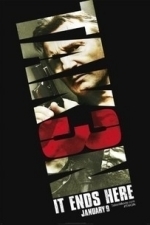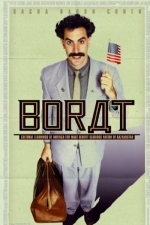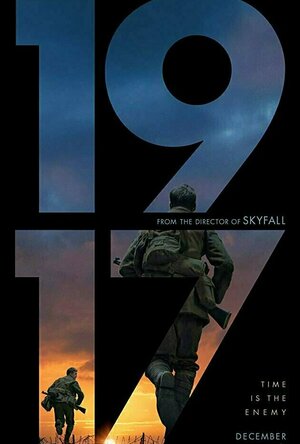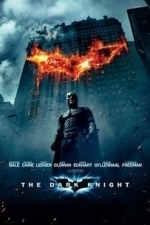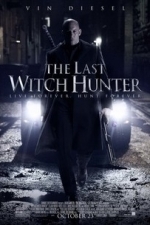Search
Movie Metropolis (309 KP) rated Taken 3 (2015) in Movies
Jun 11, 2019
Impossible to recommend
The first Taken propelled Liam Neeson to action man stardom and became one of the most surprising hits of 2009. Its successor to some extent managed to capture the same thrilling suspense despite its ridiculous 12A certification.
Despite Neeson’s efforts to shut the series down, he decided to return as Bryan Mills for his final outing, Taken 3, but can it hold a candle to its predecessors?
No is the short answer. Everything from Neeson’s phoned-in performance to the horrific camerawork and poor special effects ensure it becomes the first turkey of 2015, and by the end, you’ll wish it was you being taken – out of the cinema.
Taken 3 follows Mills as he tries to evade the LAPD after he is wrongly accused of killing his wife Lenny – played by Famke Janssen who wasliamneeson clearly more interested in the paycheque than anything else.
This is the first problem with the film. Showing the killing of Janssen’s character in the trailer makes the audience all too aware of where the film is going – destroying any suspense that you would expect from the murder of a series’ main character.
Maggie Grace returns as Kim, now looking like the world’s oldest teenager and is the only actor to leave the film with their reputation intact. Her performance is decent but the hammy, almost comedic dialogue she is given to work with spoils her credibility.
Taken-3-Movie-PosterA new addition is Forest Whitaker who plays the detective tasked with bringing Mills in, Franck Dotzler, though he again gives a career-worst performance.
As with its predecessor, Taken 3 suffers from a ridiculous 12A certification which means that Neeson is only able to look vaguely menacing. The action which was such an integral part of the first film is completely lost and becomes repetitive after seeing the 15th punch in a row.
Unfortunately, Oliver Megaton’s uninspiring direction only worsens things. Taking lessons from the Michael Bay school of cinematography, everything is ridiculously shaky, devoid of any suspense or tension at all.
The final act of Taken 3’s 109 minute running time alleviates the offerings somewhat but there’s a twist you can see coming from a mile away.
Overall, Neeson’s performances have always bettered some of the more average films of his career, but by the time the end credits role here it feels like Liam himself is fed up. From an incomprehensible script to bland performances, Taken 3 is a dire film which simply is impossible to give a recommendation.
https://moviemetropolis.net/2015/01/09/impossible-to-recommend-taken-3-review/
Despite Neeson’s efforts to shut the series down, he decided to return as Bryan Mills for his final outing, Taken 3, but can it hold a candle to its predecessors?
No is the short answer. Everything from Neeson’s phoned-in performance to the horrific camerawork and poor special effects ensure it becomes the first turkey of 2015, and by the end, you’ll wish it was you being taken – out of the cinema.
Taken 3 follows Mills as he tries to evade the LAPD after he is wrongly accused of killing his wife Lenny – played by Famke Janssen who wasliamneeson clearly more interested in the paycheque than anything else.
This is the first problem with the film. Showing the killing of Janssen’s character in the trailer makes the audience all too aware of where the film is going – destroying any suspense that you would expect from the murder of a series’ main character.
Maggie Grace returns as Kim, now looking like the world’s oldest teenager and is the only actor to leave the film with their reputation intact. Her performance is decent but the hammy, almost comedic dialogue she is given to work with spoils her credibility.
Taken-3-Movie-PosterA new addition is Forest Whitaker who plays the detective tasked with bringing Mills in, Franck Dotzler, though he again gives a career-worst performance.
As with its predecessor, Taken 3 suffers from a ridiculous 12A certification which means that Neeson is only able to look vaguely menacing. The action which was such an integral part of the first film is completely lost and becomes repetitive after seeing the 15th punch in a row.
Unfortunately, Oliver Megaton’s uninspiring direction only worsens things. Taking lessons from the Michael Bay school of cinematography, everything is ridiculously shaky, devoid of any suspense or tension at all.
The final act of Taken 3’s 109 minute running time alleviates the offerings somewhat but there’s a twist you can see coming from a mile away.
Overall, Neeson’s performances have always bettered some of the more average films of his career, but by the time the end credits role here it feels like Liam himself is fed up. From an incomprehensible script to bland performances, Taken 3 is a dire film which simply is impossible to give a recommendation.
https://moviemetropolis.net/2015/01/09/impossible-to-recommend-taken-3-review/
Gareth von Kallenbach (980 KP) rated Borat (2006) in Movies
Aug 14, 2019
One of the funniest and most shockingly outrageous comedies in the history of film has arrived, and it is poised not only to make Sacha Baron Cohen a major star, but also ignite controversy. The film is Borat and it follows Cohen’s Kazakhstan news man, Borat, as he leaves his homeland to film a documentary in New York.
Naturally one would expect a fish out of water story, but fans are treated to much more than this as Borat and his backwards thoughts and practices and given form all over the U.S. often to the shock of those around him as well as howls of laughter from the audience.
You see Borat is a man with a few issues. He is anti-Semitic, a misogynist, ignorant and uncultured, and not ashamed of his actions which grow bolder and more outrageous as the film progresses.
The opening segments in his native land like the entire film is filled with one rapid fire joke after another as Borat introduces us to his family and key people in his town such as the town rapist and his sister the prostitute. As funny as the setup and the settings are, it is the clever comments that Cohen slips in that allows Borat to make some biting social and political commentaries.
Once in America, he travels from New York to Los Angeles making several stops along the way with side splitting results as Borat encounters events ranging from a rodeo, polite society, pop culture, a religious revival and much more.
The amazing thing about the film is that it never grows old and over the roughly 84 minutes of the films running time, there are plenty of jokes and a absence of slow spots which are often so common in comedies today.
Cohen is great at portraying Borat as a likeable guy who does not know any better which makes his comments and actions so easy to take. Cohen who is himself Jewish is able to get away with making jokes about his faith as he is doing it through the persona of someone who is ignorant to many realities in the world.
In a way the film allows us to laugh at ourselves as well as Borat is supposed to be a foreigner who does not know better, but is wiser in some ways due to his ignorance of topics. There is a scene where Borat buys a car is a true look at consumerism in the West as he spells out in graphic detail what he wants in a car and what he expects it to do for his love life.
Not only is the scene outrageous but it underscores the message of sex appeal and desirability that is prevalent in car ads aimed at men. Instead of hinting at it, Borat lifts the lid on the subject and takes it on with no punches pulled.
The film is tricky to review as one of the greatest joys of the film is the sense of discovery and not knowing where or what Borat will say or do next. Suffice it to say, that the film is a comedic masterpiece that will have you shocked and laughing harder than any film in recent memory.
Naturally one would expect a fish out of water story, but fans are treated to much more than this as Borat and his backwards thoughts and practices and given form all over the U.S. often to the shock of those around him as well as howls of laughter from the audience.
You see Borat is a man with a few issues. He is anti-Semitic, a misogynist, ignorant and uncultured, and not ashamed of his actions which grow bolder and more outrageous as the film progresses.
The opening segments in his native land like the entire film is filled with one rapid fire joke after another as Borat introduces us to his family and key people in his town such as the town rapist and his sister the prostitute. As funny as the setup and the settings are, it is the clever comments that Cohen slips in that allows Borat to make some biting social and political commentaries.
Once in America, he travels from New York to Los Angeles making several stops along the way with side splitting results as Borat encounters events ranging from a rodeo, polite society, pop culture, a religious revival and much more.
The amazing thing about the film is that it never grows old and over the roughly 84 minutes of the films running time, there are plenty of jokes and a absence of slow spots which are often so common in comedies today.
Cohen is great at portraying Borat as a likeable guy who does not know any better which makes his comments and actions so easy to take. Cohen who is himself Jewish is able to get away with making jokes about his faith as he is doing it through the persona of someone who is ignorant to many realities in the world.
In a way the film allows us to laugh at ourselves as well as Borat is supposed to be a foreigner who does not know better, but is wiser in some ways due to his ignorance of topics. There is a scene where Borat buys a car is a true look at consumerism in the West as he spells out in graphic detail what he wants in a car and what he expects it to do for his love life.
Not only is the scene outrageous but it underscores the message of sex appeal and desirability that is prevalent in car ads aimed at men. Instead of hinting at it, Borat lifts the lid on the subject and takes it on with no punches pulled.
The film is tricky to review as one of the greatest joys of the film is the sense of discovery and not knowing where or what Borat will say or do next. Suffice it to say, that the film is a comedic masterpiece that will have you shocked and laughing harder than any film in recent memory.
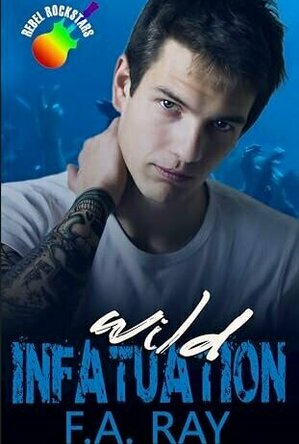
Wild Infatuation (Rebel Rockstars #3)
Book
An obsessed fan is the last person I should trust. But when he becomes the band’s hair and makeup...
Contemporary MM Rockstar Romance
Bob Mann (459 KP) rated 1917 (2020) in Movies
Jan 12, 2020
Cinematography (1 more)
Visceral and enormously tense movie experience
Visceral, brilliant and a far from relaxing evening at the movies.
It's already won Best Film at the Golden Globes, and seems set for Oscar glory too. Is Sam Mendes's WW1 epic any good?
"The Man is the Mission" - The similarities with the storyline of Spielberg's "Saving Private Ryan" are evident. Lance Corporal Blake (Dean-Charles Chapman) has a brother serving in another battalion of 1,600 men under the command of Colonel Mackenzie (Benedict Cumberbatch). The problem is that they are walking into a trap and are about to be slaughtered when they go over the top at dawn. General Erinmore (Colin Firth) picks Blake and his mate Lance Corporal Will Schofield (George MacKay) to run a dangerous mission to cross no-mans land, break through the German lines and get the message to Mackenzie to call the attack off.
Famously, the movie uses the "Rope" / "Birdman" technique of appearing to film the action as a single continuous take. This adds enormously to the tension as the duo proceed into danger. Aside from a chance meeting with a French foster mother (Claire Duburcq), the tension is maintained at 110% for the film's duration. Which makes for an exhausting watch! Congratulations by the way to Ms Duburcq for bagging the one female role in the whole movie! This is the anti-dote to the female-heavy movies of 2019!
This is a movie you MUST go to see in the cinema. A star of the show is Roger Deakins' cinematography which is just glorious to look at. The hell-holes (literally) of no-mans land are one thing, but then we get the sweeping landscapes of the green french countryside (actually Wiltshire, just a few miles from where I live!). But the really jaw-dropping cinematography for me came in a flare-lit ruined French town. The effect of a raging fire in the distance and the constantly shifting shadows of the ruins is truly spectacular.
All of this is helped by a great score by Thomas Newman, particularly at this moment in the film. The music suits the action perfectly, which is all you can ask for from a score.
I first noticed George MacKay in one of the lead roles in the Proclaimers musical "Sunshine on Leith" and then again in "Pride": both relatively low-key British films. Here he is catapulted onto the global blockbuster stage, and has nowhere to hide being on-screen literally for the whole running time (and he is running!). He doesn't disappoint: the performance is a stellar one and he holds the drama together.
He's got good support though: small but important supporting roles come from not only Firth and Cumberbatch but also Daniel ("Line of Duty") Mays; Andrew ("Kneel!") Scott; Adrian ("Killing Eve") Scarborough and Richard Madden. But my favourite was a quietly strong (no pun intended) from Mark Strong as a friendly captain with good advice for our hero.
Is the single-shot idea a gimmick? Perhaps. But it is extremely effective at maintaining the momentum. Perhaps to a degree it is a bit of a distraction, since I was constantly looking for the cuts (and very clever they are too). But it is undeniably a marvelous piece of film-making. The choreography involved with getting all of those actors and extras moving in unison for the length of some of those takes would make even Busby Berkeley sweat!
There are also some truly extraordinary action shots: a barn scene (and its dramatic aftermath) is one of the most incredible bits of film-making I've seen not just this year (that's not saying much!) but also last year.
The movie is not for the faint-hearted, with some truly gruesome scenes that stick in the mind afterwards. The illustrious Mrs Movie Man spent most of the movie with her hands over her eyes! But in general, this feels authentic. My own grandfather spent 3 days and nights lying wounded in the French mud, before being rescued... by the Germans. War is hell, and the film reflects that.
Director Sam Mendes - also a Golden Globe winner - only goes a bit Hollywood at one point: a musical interlude where an exhausted Schofield creeps into camp (what? no guards?) and listens to a wistful acappella. The realism felt like it went from 10/10 to 7/10.
This is a top-class piece of movie-making and deserves all its award success. I went in with a bit of an "Oscar-bait" attitude; the one-take gimmick peaking my interest but also stoking my cynicism. Was this to be just a technically fabulous movie that would win the awards but not really entertain? But my cynicism was unfounded. It's a gripping watch and a truly memorable movie.
See it. See it at the cinema. And see it at a cinema with as big a screen and with as great a sound system as possible!
(For the full graphical review, please check out the review on One Mann's Movies at https://bob-the-movie-man.com/2020/01/12/one-manns-movies-film-review-1917-2019/ )
"The Man is the Mission" - The similarities with the storyline of Spielberg's "Saving Private Ryan" are evident. Lance Corporal Blake (Dean-Charles Chapman) has a brother serving in another battalion of 1,600 men under the command of Colonel Mackenzie (Benedict Cumberbatch). The problem is that they are walking into a trap and are about to be slaughtered when they go over the top at dawn. General Erinmore (Colin Firth) picks Blake and his mate Lance Corporal Will Schofield (George MacKay) to run a dangerous mission to cross no-mans land, break through the German lines and get the message to Mackenzie to call the attack off.
Famously, the movie uses the "Rope" / "Birdman" technique of appearing to film the action as a single continuous take. This adds enormously to the tension as the duo proceed into danger. Aside from a chance meeting with a French foster mother (Claire Duburcq), the tension is maintained at 110% for the film's duration. Which makes for an exhausting watch! Congratulations by the way to Ms Duburcq for bagging the one female role in the whole movie! This is the anti-dote to the female-heavy movies of 2019!
This is a movie you MUST go to see in the cinema. A star of the show is Roger Deakins' cinematography which is just glorious to look at. The hell-holes (literally) of no-mans land are one thing, but then we get the sweeping landscapes of the green french countryside (actually Wiltshire, just a few miles from where I live!). But the really jaw-dropping cinematography for me came in a flare-lit ruined French town. The effect of a raging fire in the distance and the constantly shifting shadows of the ruins is truly spectacular.
All of this is helped by a great score by Thomas Newman, particularly at this moment in the film. The music suits the action perfectly, which is all you can ask for from a score.
I first noticed George MacKay in one of the lead roles in the Proclaimers musical "Sunshine on Leith" and then again in "Pride": both relatively low-key British films. Here he is catapulted onto the global blockbuster stage, and has nowhere to hide being on-screen literally for the whole running time (and he is running!). He doesn't disappoint: the performance is a stellar one and he holds the drama together.
He's got good support though: small but important supporting roles come from not only Firth and Cumberbatch but also Daniel ("Line of Duty") Mays; Andrew ("Kneel!") Scott; Adrian ("Killing Eve") Scarborough and Richard Madden. But my favourite was a quietly strong (no pun intended) from Mark Strong as a friendly captain with good advice for our hero.
Is the single-shot idea a gimmick? Perhaps. But it is extremely effective at maintaining the momentum. Perhaps to a degree it is a bit of a distraction, since I was constantly looking for the cuts (and very clever they are too). But it is undeniably a marvelous piece of film-making. The choreography involved with getting all of those actors and extras moving in unison for the length of some of those takes would make even Busby Berkeley sweat!
There are also some truly extraordinary action shots: a barn scene (and its dramatic aftermath) is one of the most incredible bits of film-making I've seen not just this year (that's not saying much!) but also last year.
The movie is not for the faint-hearted, with some truly gruesome scenes that stick in the mind afterwards. The illustrious Mrs Movie Man spent most of the movie with her hands over her eyes! But in general, this feels authentic. My own grandfather spent 3 days and nights lying wounded in the French mud, before being rescued... by the Germans. War is hell, and the film reflects that.
Director Sam Mendes - also a Golden Globe winner - only goes a bit Hollywood at one point: a musical interlude where an exhausted Schofield creeps into camp (what? no guards?) and listens to a wistful acappella. The realism felt like it went from 10/10 to 7/10.
This is a top-class piece of movie-making and deserves all its award success. I went in with a bit of an "Oscar-bait" attitude; the one-take gimmick peaking my interest but also stoking my cynicism. Was this to be just a technically fabulous movie that would win the awards but not really entertain? But my cynicism was unfounded. It's a gripping watch and a truly memorable movie.
See it. See it at the cinema. And see it at a cinema with as big a screen and with as great a sound system as possible!
(For the full graphical review, please check out the review on One Mann's Movies at https://bob-the-movie-man.com/2020/01/12/one-manns-movies-film-review-1917-2019/ )
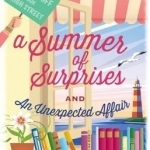
A Summer of Surprises: And, an Unexpected Affair
Book
An Unexpected Affair After her divorce, Eleanor Mace decides to begin a new life running a quirky...
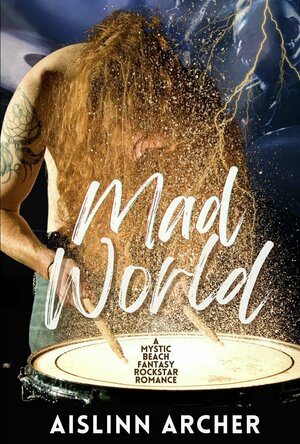
Mad World (Mystic Beach #5)
Book
The drummer for chart-topping rock band aMUSEd has just met the literal woman of his dreams. But...
Adult Paranormal Romance Rockstar
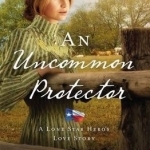
An Uncommon Protector
Book
Overwhelmed by the responsibilities of running a ranch on her own, Laurel Tracey decides to hire a...
Chris Sawin (602 KP) rated The Dark Knight (2008) in Movies
Jun 19, 2019
The Dark Knight picks up not too long after Batman Begins left off. The way the citizens of Gotham look at Batman is still pretty divided. Some see him as a vigilante in a mask who takes the law into his own hands and others see him as a caped crusader who helps keep scum off the streets. A hero to some and a villain to others. Harvey Dent, the man running for DA, enters the picture and could be the face Gotham is looking for to be its new hero. A man who's not only capable of getting rid of the filth on the streets of Gotham in a more efficient manner, but could be the reason Batman hangs up his cape for good. It seems as though Gotham has found itself with a new criminal psychopath though that's keeping Batman, Harvey Dent, and the Gotham PD busy these days. The Joker is, without a doubt, Batman's most dangerous adversary. A madman whose only desire is to give Gotham a better class of criminal. Bruce Wayne goes beyond his limits as Batman to try and take him down and all The Joker wants is for Gotham to be filled with pure chaos. Can Batman bring The Joker to justice? Will Harvey Dent become Gotham's new white knight? How does Rachel Dawes fit into the picture?
I had been looking forward to this movie for what seemed like an eternity and to make it worse is that I had to sit in the theater for an hour since I got there early. All I could think about was that I was finally seeing this movie that I was so excited about. I have never anticipated a film to this capacity. Ever. I was thinking that there was no way a movie could live up to being that good. So the real question is, "Did the film live up to my expectations?" The answer is no. It didn't. It surpassed my expectations in every way possible. The two hours and thirty two minutes running time went by in a blur as there was little to no down time and my eyes were drawn to the screen the entire time. This movie was epic. I don't toss that word around too often, but there's no way else to describe it. It was epic in every sense of the word. I've never seen a film that had this much of a crowd response to not only the film, its actors, its twists and turns, but the trailers beforehand as well. I lost count how many times I had goosebumps throughout the film because what I was witnessing was exactly what I wanted to see and then some. It is truly an extraordinary experience.
The cast was brilliant. The returning cast from the last film continued to be impressive. Michael Caine always manages to be charming and steal a few laughs as Alfred and the film wouldn't be the same without Morgan Freeman as Lucius Fox. Christian Bale is still the best Batman to ever put on the cape, in my opinion. It was nice seeing more Batman this time around than Bruce Wayne. The way he struggles with if continuing to be Batman is the right thing for Gotham still plagues him and is still equally as amazing. Maggie Gyllenhaal has, as I'm sure you've heard by now, replaced Katie Holmes as Rachel Dawes and actually brings a spark to the role. She brought the charisma and overall talent to The Dark Knight that Katie Holmes should have had in Batman Begins. Gary Oldman is an actor who I still think doesn't deserve the credit he deserves and what he brings to the role of Jim Gordon, especially this time around in The Dark Knight, should hopefully get people talking. Which brings me to Aaron Eckhart. By the time the credits start rolling, I can guarantee you'll be praising his work in this film. I can't really imagine anyone else in the role of Harvey Dent now and what he winds up going through and how he portrays it is just incredible. The intensity he put into the role really caused him to steal quite a few scenes.
Hm. That's the whole cast isn't it? I'm not leaving anyone out, right? Oh, of course. Heath Ledger as The Joker. Did it live up to the hype and was it worth all the fuss? It does, my friends. It's actually better than the hype. Ledger steals every scene he's in. Period. Whatever he tapped into and whatever kind of preparation he went through for this role is truly phenomenal. He WAS The Joker in this film. He was somehow able to embody The Joker in a way that is frightening, maniacal, and even hysterical all at the same time. You will wind up holding your breath and trying not to make a sound every time he comes on screen because you don't want to miss a second of this mesmerizing performance. I was reading that he locked himself up in an empty apartment for a month to prepare for the role to get a true feel for the character; his body language, quirks, his voice, etc. He had The Killing Joke, The Man Who Laughed, and a few of the first issues of Batman that had appearances from the Joker as references. I can tell you this...it truly shows, if that's the case. The way he submerged himself in this character is almost beyond words. He deserves every ounce of praise that he gets.
It is ridiculous how much praise The Dark Knight truly deserves. Even the most elaborate descriptions feel like they're still not doing the movie justice. The film is for Batman fans, for Nolan fans, for fans of good storytelling, for fans of good writing, for fans of amazing cinematography, for fans of some of the strongest acting performances ever to be filmed, for fans of action/crime/dramas...long story short, the film can and probably will be enjoyed by anyone. It is the only film to come out in recent years that not only lived up to the hype, but leaped over it and actually deserved every bit of it. By the time you get to the end credits, you'll immediately want to see it again and you'll be just as excited the second time(and possibly third time) through. It's that good.
I had been looking forward to this movie for what seemed like an eternity and to make it worse is that I had to sit in the theater for an hour since I got there early. All I could think about was that I was finally seeing this movie that I was so excited about. I have never anticipated a film to this capacity. Ever. I was thinking that there was no way a movie could live up to being that good. So the real question is, "Did the film live up to my expectations?" The answer is no. It didn't. It surpassed my expectations in every way possible. The two hours and thirty two minutes running time went by in a blur as there was little to no down time and my eyes were drawn to the screen the entire time. This movie was epic. I don't toss that word around too often, but there's no way else to describe it. It was epic in every sense of the word. I've never seen a film that had this much of a crowd response to not only the film, its actors, its twists and turns, but the trailers beforehand as well. I lost count how many times I had goosebumps throughout the film because what I was witnessing was exactly what I wanted to see and then some. It is truly an extraordinary experience.
The cast was brilliant. The returning cast from the last film continued to be impressive. Michael Caine always manages to be charming and steal a few laughs as Alfred and the film wouldn't be the same without Morgan Freeman as Lucius Fox. Christian Bale is still the best Batman to ever put on the cape, in my opinion. It was nice seeing more Batman this time around than Bruce Wayne. The way he struggles with if continuing to be Batman is the right thing for Gotham still plagues him and is still equally as amazing. Maggie Gyllenhaal has, as I'm sure you've heard by now, replaced Katie Holmes as Rachel Dawes and actually brings a spark to the role. She brought the charisma and overall talent to The Dark Knight that Katie Holmes should have had in Batman Begins. Gary Oldman is an actor who I still think doesn't deserve the credit he deserves and what he brings to the role of Jim Gordon, especially this time around in The Dark Knight, should hopefully get people talking. Which brings me to Aaron Eckhart. By the time the credits start rolling, I can guarantee you'll be praising his work in this film. I can't really imagine anyone else in the role of Harvey Dent now and what he winds up going through and how he portrays it is just incredible. The intensity he put into the role really caused him to steal quite a few scenes.
Hm. That's the whole cast isn't it? I'm not leaving anyone out, right? Oh, of course. Heath Ledger as The Joker. Did it live up to the hype and was it worth all the fuss? It does, my friends. It's actually better than the hype. Ledger steals every scene he's in. Period. Whatever he tapped into and whatever kind of preparation he went through for this role is truly phenomenal. He WAS The Joker in this film. He was somehow able to embody The Joker in a way that is frightening, maniacal, and even hysterical all at the same time. You will wind up holding your breath and trying not to make a sound every time he comes on screen because you don't want to miss a second of this mesmerizing performance. I was reading that he locked himself up in an empty apartment for a month to prepare for the role to get a true feel for the character; his body language, quirks, his voice, etc. He had The Killing Joke, The Man Who Laughed, and a few of the first issues of Batman that had appearances from the Joker as references. I can tell you this...it truly shows, if that's the case. The way he submerged himself in this character is almost beyond words. He deserves every ounce of praise that he gets.
It is ridiculous how much praise The Dark Knight truly deserves. Even the most elaborate descriptions feel like they're still not doing the movie justice. The film is for Batman fans, for Nolan fans, for fans of good storytelling, for fans of good writing, for fans of amazing cinematography, for fans of some of the strongest acting performances ever to be filmed, for fans of action/crime/dramas...long story short, the film can and probably will be enjoyed by anyone. It is the only film to come out in recent years that not only lived up to the hype, but leaped over it and actually deserved every bit of it. By the time you get to the end credits, you'll immediately want to see it again and you'll be just as excited the second time(and possibly third time) through. It's that good.
Movie Metropolis (309 KP) rated The Last Witch Hunter (2015) in Movies
Jun 11, 2019
Enjoyable if forgettable
Can you imagine Vin Diesel as a peacekeeper in a time of witch suppression? I admit when I first heard the premise of The Last Witch Hunter I was a little sceptical of just how the Fast & Furious star would cope with such a change of role.
However, my concerns were quickly brushed aside during the first ten minutes of this unusual action adventure. But is the rest of the movie as good as its leading man?
Unfortunately, the short answer is no. Not only does Vin Diesel have to stand-off against supernatural beings, he has to take on a bland script, clichéd side characters, including a terrifically poor performance from Elijah Wood, and a plot that constantly shifts uncomfortably in tone – unable to grasp just what genre it is trying to be.
The Last Witch Hunter follows Diesel’s Kaulder as he tries to keep the peace during a time when witches live among humans in plain sight, bound by laws sworn in after a great war that ravished both sides.
He, alongside the ever-reliable Michael Caine, a wooden Elijah Wood and a lacklustre Rose Leslie fight to save the planet from the torment of a Witch Queen.
That pretty much sums up the entire plot and the dialogue doesn’t fare any better with a forced comedic edge stopping the film dead in its tracks.
Elsewhere, the characters are drawn so thinly that only Diesel makes any kind of lasting impression, though the audience is force fed a backstory so emotional, it feels like it’s been brought straight from The X Factor.
Nevertheless, The Last Witch Hunter’s succinct running time does a lot to turn the film around. Thankfully, the thin story just about stretches over the 106 minutes and the set pieces are an enjoyable romp with Diesel doing what he does best.
The special effects too are very good indeed. Considering its lesser-known nature, the production team have crafted some creepy and intriguing sets with the finale looking like it took the majority of the film’s $90million budget.
It’s just a shame that the rest of the movie falls terribly flat. What could have been an unusual and exciting trip to the cinema, ends up being another forgettable and tiresome experience.
Overall, The Last Witch Hunter is an enjoyable if entirely forgettable romp that suffers from the same problems that blight so many Hollywood blockbusters. From bland characters to poor scriptwriting and bad dialogue, only Vin Diesel and some good special effects save it from being a write-off.
https://moviemetropolis.net/2015/10/25/enjoyable-if-forgettable-the-last-witch-hunter-review/
However, my concerns were quickly brushed aside during the first ten minutes of this unusual action adventure. But is the rest of the movie as good as its leading man?
Unfortunately, the short answer is no. Not only does Vin Diesel have to stand-off against supernatural beings, he has to take on a bland script, clichéd side characters, including a terrifically poor performance from Elijah Wood, and a plot that constantly shifts uncomfortably in tone – unable to grasp just what genre it is trying to be.
The Last Witch Hunter follows Diesel’s Kaulder as he tries to keep the peace during a time when witches live among humans in plain sight, bound by laws sworn in after a great war that ravished both sides.
He, alongside the ever-reliable Michael Caine, a wooden Elijah Wood and a lacklustre Rose Leslie fight to save the planet from the torment of a Witch Queen.
That pretty much sums up the entire plot and the dialogue doesn’t fare any better with a forced comedic edge stopping the film dead in its tracks.
Elsewhere, the characters are drawn so thinly that only Diesel makes any kind of lasting impression, though the audience is force fed a backstory so emotional, it feels like it’s been brought straight from The X Factor.
Nevertheless, The Last Witch Hunter’s succinct running time does a lot to turn the film around. Thankfully, the thin story just about stretches over the 106 minutes and the set pieces are an enjoyable romp with Diesel doing what he does best.
The special effects too are very good indeed. Considering its lesser-known nature, the production team have crafted some creepy and intriguing sets with the finale looking like it took the majority of the film’s $90million budget.
It’s just a shame that the rest of the movie falls terribly flat. What could have been an unusual and exciting trip to the cinema, ends up being another forgettable and tiresome experience.
Overall, The Last Witch Hunter is an enjoyable if entirely forgettable romp that suffers from the same problems that blight so many Hollywood blockbusters. From bland characters to poor scriptwriting and bad dialogue, only Vin Diesel and some good special effects save it from being a write-off.
https://moviemetropolis.net/2015/10/25/enjoyable-if-forgettable-the-last-witch-hunter-review/
